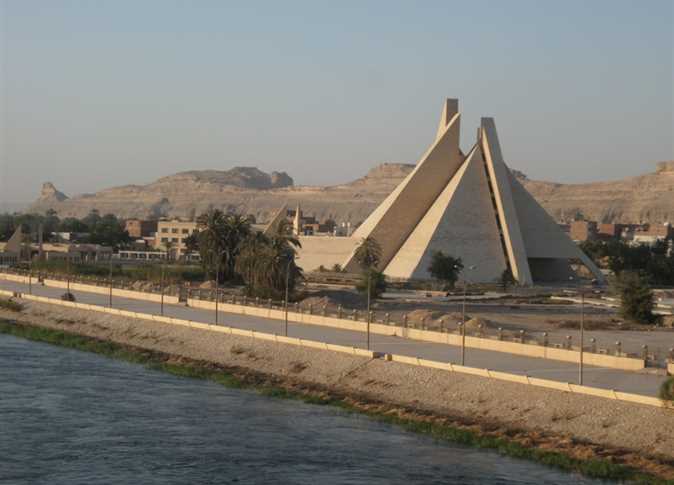"He who signed his orders of the day, the Member of the Institute, Commander-in-Chief of the Army in the East, could not fail to place an Academy among the means of regenerating the ancient kingdom of the pharaohs. The valiant army that he commanded had barely conquered at Cairo … when the Institut d'Egypte sprung into existence."
Thus spoke prominent mathematician and revolutionary politician Francois Arago in 1833. Napoleon was his man, and the institute was the Institut de France. The Egyptian version Arago refers to is currently housed in a building that stood at the epicenter of recurrent clashes that have pitted rioting protesters against unruly military and security units. As a result, it went up in flames last month.
The fire brigade would not come to the scene. They said they had no 'orders' for doing so. Rare manuscripts were trapped inside, but the orphaned academy lacked any affiliates that remotely resembled the academies tied to its French counterpart. For decades, hardly anyone had been consulting its documents. The scene, accentuated by election results that showed Islamists winning devastating landslides, seemed symbolic of the gradual dissolution of a set of visions and aspirations that linked Egypt to the West; ideas that were influential during Egypt's short-lived liberal era in the first half of the 20th century.
Much like Arago did, the likes of Taha Hussein found a basis for these links in ancient interactions between Egyptian and Greek civilizations; they also spotted additional connections in the Greek influence on Arabic and Islamic thought and the latter's influence on Europe. They thus maintained that by opening up to Europe, Egypt was only reaping the fruit of a product it had long contributed to, and they therefore saw Egypt's future in terms of constructive engagement and ever-closer association with the West.
In contrast, the picture that came to dominate Egyptian public discourse during the last six decades was one that perceived the relationship between Egypt and the world primarily in terms of continuous existential struggle. This is the rhetoric that has been used to great effect, through the past year, by official media tirelessly weaving stories of foreign plots and conspiracies to explain ongoing turmoil. The modern intellectual roots of this adversarial rhetoric, and the elements of its success with many Egyptians, can be traced back to the problematic nature of Egypt's encounter with the modernity, which started with the Napoleonic expedition.
According to Arago, "the illustrious general did not dream merely of the momentary conquest of Egypt; he wished to restore to that country its ancient splendor; he wished … to rescue [its inhabitants] from the galling yoke under which they had groaned for ages … to bestow upon them without delay all the benefits of European civilization."
Most of Egypt's intellectuals in the first half of the 20th century concurred that there were universal ideas and systems, not technical methods, to be learned from European culture — not least because many of those intellectuals were French-educated, a consequence of a long-term scholarship program started in the wake of the expedition. Ultimately, however, they failed to defend this stance.
The occasion of Arago's comments illustrates how culture and imperialism fused, making it easy for Egyptians disfavoring constructive engagement to make their case. The comments reproduced above were made during a lecture commemorating Joseph Fourier, one of the savants who accompanied Napoleon to Egypt. In this capacity, Fourier became the first secretary of the Institut d'Egypte, and as such wrote the introduction to the monumental "Description de L’Egypte."
Fourier also mentored the scholar Jean-Francois Champollion, supporting him in his quest to decipher Egypt's ancient language. A brilliant mathematician, Fourier busied himself with abstract algebraic problems, studies in mechanics, as well as more mundane matters connected to the statistic of Nile flooding. Upon his return to France, he wrote one of the most important treatises in the history of science and mathematics; it dealt with the phenomenon of heat transfer and its mathematical analysis. He discovered the greenhouse effect in the process.
In this capacity, Fourier embodied the penetrating power of rational perspective and method, qualities much admired by many Egyptian intellectuals. However, his Egyptian tenure also involved the more controversial aspects of the relationship between knowledge and power in a colonial context.
In France, Fourier would fondly reminisce of Egypt and its inhabitants. In his biography of the mathematician, John Herivel suggests that Fourier chose to study heat because of an obsession with warmth that he acquired in his beloved Upper Egypt.
However, these affinities notwithstanding, Fourier was there as Napoleon's colonial governor, and was involved in the country's violent subjugation: "I remained in that magnificent country until the period of its complete evacuation. Although foreign to the profession of arms, I have, in the midst of our soldiers, fired against the insurgents of Cairo; I have had the honor of hearing the cannon of Heliopolis." He was also the one who gave a moving eulogy following the assassination of General Kleber, Napoleon's heir in Egypt. Given in front of thousands of soldiers, it preceded the torture and impalement of the assassin.
Today, the incongruities of Fourier's Egyptian sejour are imprinted on maps of central Cairo. In that small space, often said to be structured after Haussmann's Paris, streets bearing the name of Fourier's disciple, Champollion, and his nemesis, Kleber's assassin, coexist.
Egyptians admired the technical achievements of rational method, and in some cases its conceptual basis too, but many saw the Enlightenment's rhetoric of universality and rationalism as an instrument of domination, exploitation and, finally, the decimation of cultures. They would eventually decide to demand not only political independence for their country, but the wholesale rejection of political ideas and frameworks associated with the imperial powers. For Islamists, this included Egypt's current legal system, which is largely based on the Napoleonic code.
There are parallels here with what transpired in intellectual circles in Germany in the aftermath of Napoleon's invasion. There, admiration for the values of the French revolution was followed by disappointment. The backlash was essentially a revolt against the rational, universal values that France championed. It was most eloquently expressed in Johann Gottlieb Fichte's "Addresses to the German Nation," in which he stressed the particularistic "sublime," transcendental, almost spiritual qualities of Germany's culture were superior to the dry, cerebral slogans of the French. As a consequence, the economic and social transformations associated with modernization would not lead Germany to a cogent conception of nationalism, reflected in a liberal civic state protecting the rights of the individual, as was the case in Britain and France. German nationalism developed into something exclusive, tribal and prone to harrowing flights of fancy borne on romantic foundations.
If any ancient collective could be thought to have national characteristics, the Egyptian case is a prime candidate. Nevertheless, by the time Napoleon arrived, the country had been through successive invasions and changes in identity; it no longer could be thought of as a distinct nation in the modern sense. The subsequent challenge of modernity imposed the need for a collective identity and an accompanying political and economic system to replace traditional forms. The attempt to base this on the liberal, civic-nationalist model failed in the first half of the 20th century, largely due to its association with past colonial struggles against imperial nations championing precisely these values. In the second half of the century, Gamal Abdel Nasser's increasingly hostile anti-liberal rhetoric — employed in the context of an ever-stiffening political and cultural struggle with the West — became wildly popular. Its basic premises remain, perhaps even more so, today.
With the burning of the Institut d'Egypt, it seems that a whole page of Egyptian history, embellished with a host of illustrious names associated with the Institute — from Fourier and Gaston Maspero, to Taha Hussein and Ahmed Zaki Pasha — is being turned. Having failed at finding a Pharaonic, civic-nationalist or Arab framework for their modern nation, most Egyptians now assume that Islamism is the only solution. The experience of the March referendum and recent parliamentary elections suggests that religious discourse is decidedly the most effective system in communicating ideas among Egyptians. It is almost the only basis through which most can frame the world and form a common, clearly communicable conception of it. Currently, it constitutes the primary foundation of the still developing modern Egyptian identity.
A potentially problematic foundation, like its Arab counterpart, it is extra-territorial and tribal, and therefore vulnerable to the same problems. In cases like this, minorities might have no place in the consensual national identity, and might be discriminated against in the name of national unity and cohesion. And, if the leadership decides to speak and act on behalf of the larger Islamic nation, particularly in order to 'lead it,' it will be susceptible to the same sort of demagoguery and adventurism that plagued Arab nationalist regimes.
The Arabic nationalist project had lead to the virtual disappearance of almost all the minority communities that inhabited early 20th-century Egypt. The coming Islamist surge might have a similar effect on the remaining religious and 'cultural' minorities, namely the Christians and the secularists; it may even lead to the dissolution of the Egyptian state, in a way similar to Sudan.
Whether this will happen will depend on the path taken by the ongoing transition to modernity and associated evolution of the Egyptian national identity, particularly on whether Islamist domination through the coming years will take place within a pluralist political context or a collectivist setup.
This in turn will partly hinge on what will remain of the legacy of Egypt's intellectuals of the liberal age, the last era in which there was any semblance of a democratic open society here. It is easier to revive a forgotten legacy than to start anew, especially given the paranoid suspicion Egyptians have come to feel toward direct importation of foreign ideas and models. The intellectual and literary legacy of Egypt's liberal era remains — for now — highly respected, despite its long marginalization from political discourse, For more than a moment, it seemed that its pluralist ethos inspired the society that formed in Tahrir Square last year. The challenge will be to disseminate it through the larger Egyptian society, which we now know has clearly different orientations.




